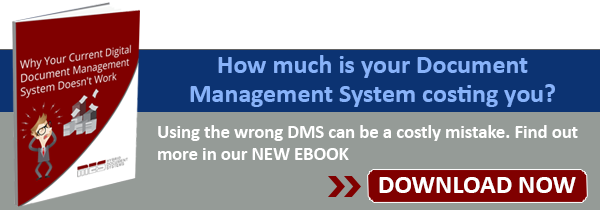 Keeping your financial house in order does not end after an accountant finalizes their statements, tax returns, or other documents. The federal government has a set of accounting records retention guidelines that must be adhered to and each type of accounting document has different requirements that your team should be aware of. Not adhering to these guidelines can make it more difficult for your company to:
Keeping your financial house in order does not end after an accountant finalizes their statements, tax returns, or other documents. The federal government has a set of accounting records retention guidelines that must be adhered to and each type of accounting document has different requirements that your team should be aware of. Not adhering to these guidelines can make it more difficult for your company to:- Pass tax audits
- Successfully submit an amended tax return
- Win legal battles
- Successfully refute allegations of fraud by the government
- Auditor's reports - forever
- Annual financial reports - forever
- Cancelled checks - forever
- General journal - forever
- Fixed asset records - forever
- General ledger - forever
- Purchase journal - forever
- Payroll journal - forever
- Fiscal year end trial balance - forever
- Financial statements - forever
- Actuarial reports - forever
- Information returns - forever
- Canada Revenue Agency correspondence - forever
- Investment reports - forever
- Bank statements/deposit slips - 7 years
- Payment records - 7 years
- Sales and revenue records - 7 years
- Expense reports - 7 years
- Inventory listings - 7 years
- Accounts payable - 7 years
- Accounts receivable - 7 years
- Depreciation schedules - 7 years
- Purchases and purchase orders - 7 years
- Tax returns - 6 years
- Bank Reconciliations - 3 years
Keep in mind that these are minimum record retention guidelines. Unless otherwise noted by the government, you can retain all of your accounting records forever.
Don't make accounting record retention more of a burden than it has to be
Knowing how long you have to retain accounting documents is only half the battle. Now you have to find a way to manage it all. Trying to keep up with all of these accounting documents for periods that vary between several years to forever can seem like an overwhelming task for the most organized accounting team. You can significantly reduce the burden created by accounting records retention guidelines by streamlining your entire document management process with the following steps:
Stop hoarding paper
No matter how organized your filing system is, sorting through hundreds of pounds of paperwork is time consuming. Instead of trying to find the space to file away more general journal entries, stop using paper. Switch to digital documents for your future accounting endeavors.
Keep in mind that the federal government has put in place records management legislation that makes using digital documents easier. As you make the switch, be sure to have your current accounting documents professionally converted to digital files. You can also have all of your data captured and indexed -- no matter how bad the handwriting on your documents is. This way, everything will be accessible via the same channel.
Use the tools available to you to make document management easier
Switching to digital accounting records is great, but if you are simply placing everything in arbitrarily defined folders, then you will still have to sift through a lot of files to access specific accounting records. Make sure that you implement a proper document management system that will make accessing your accounting records as easy as doing a quick Google search. This can also reduce the likelihood of accidental record destruction by automatically making certain types of files read only within their retention period.
*Note: if an accounting record is accidentally lost or destroyed, be sure to immediately notify a relevant government agency
Pre-emptively preparing for accounting records retention guidelines will put your entire company in a better position
You should not have to worry about whether or not an accounting document is destroyed or lost before its time. A knowledge of the guidelines and a streamlined accounting document management system will prevent this from happening.

